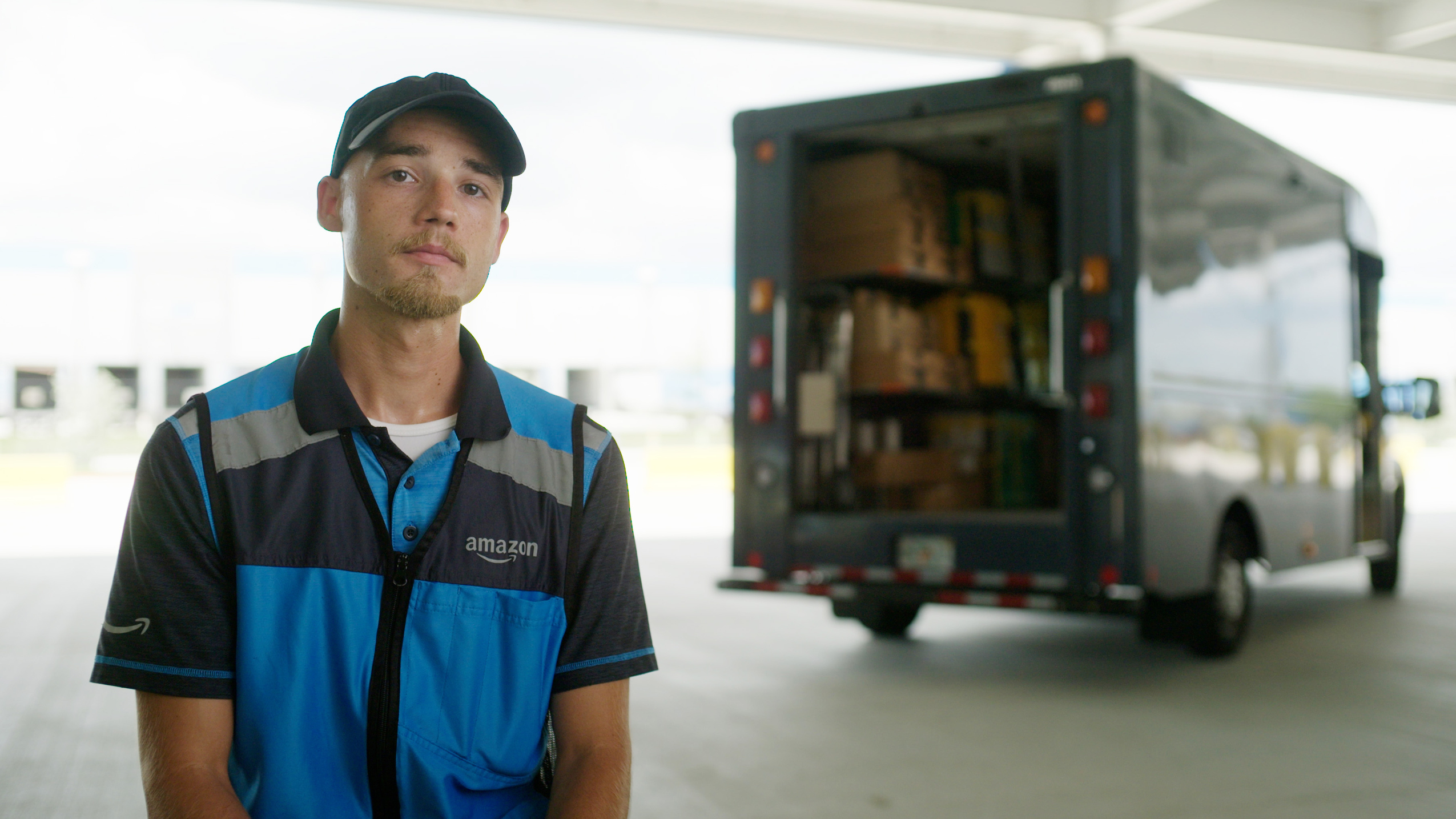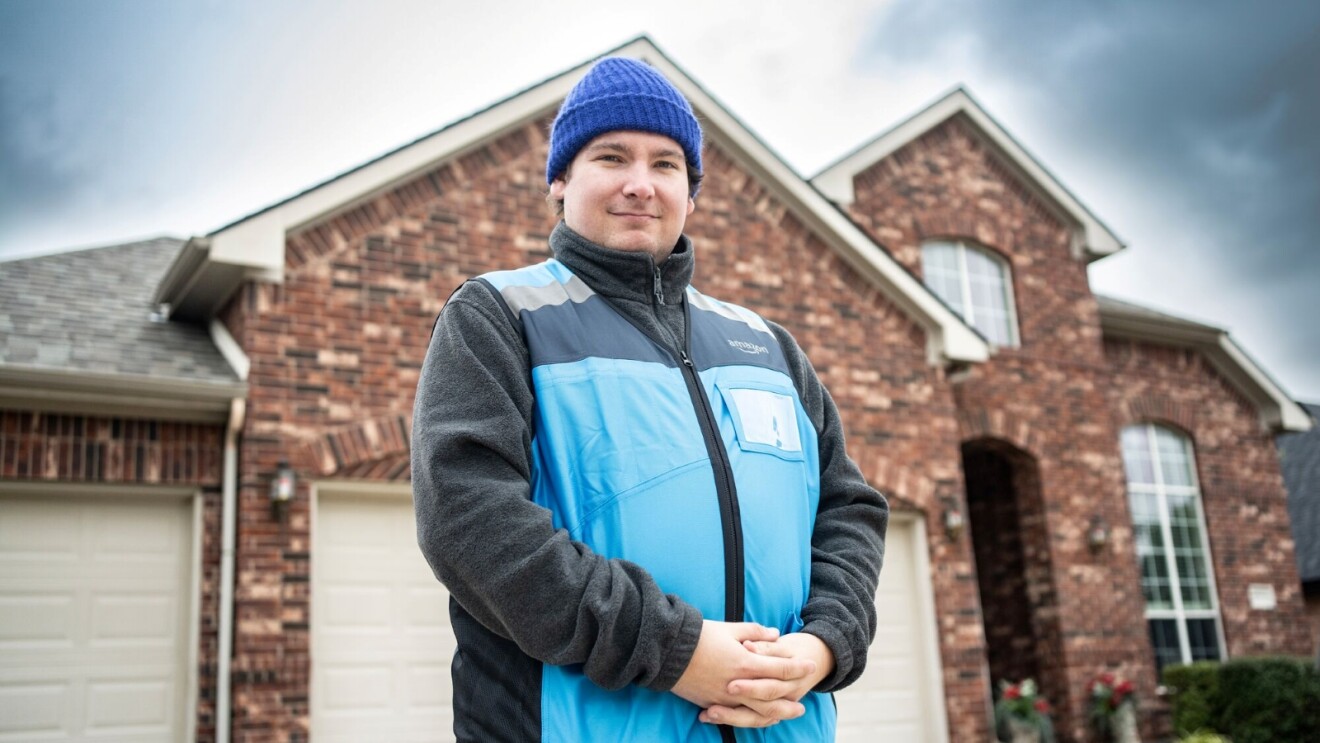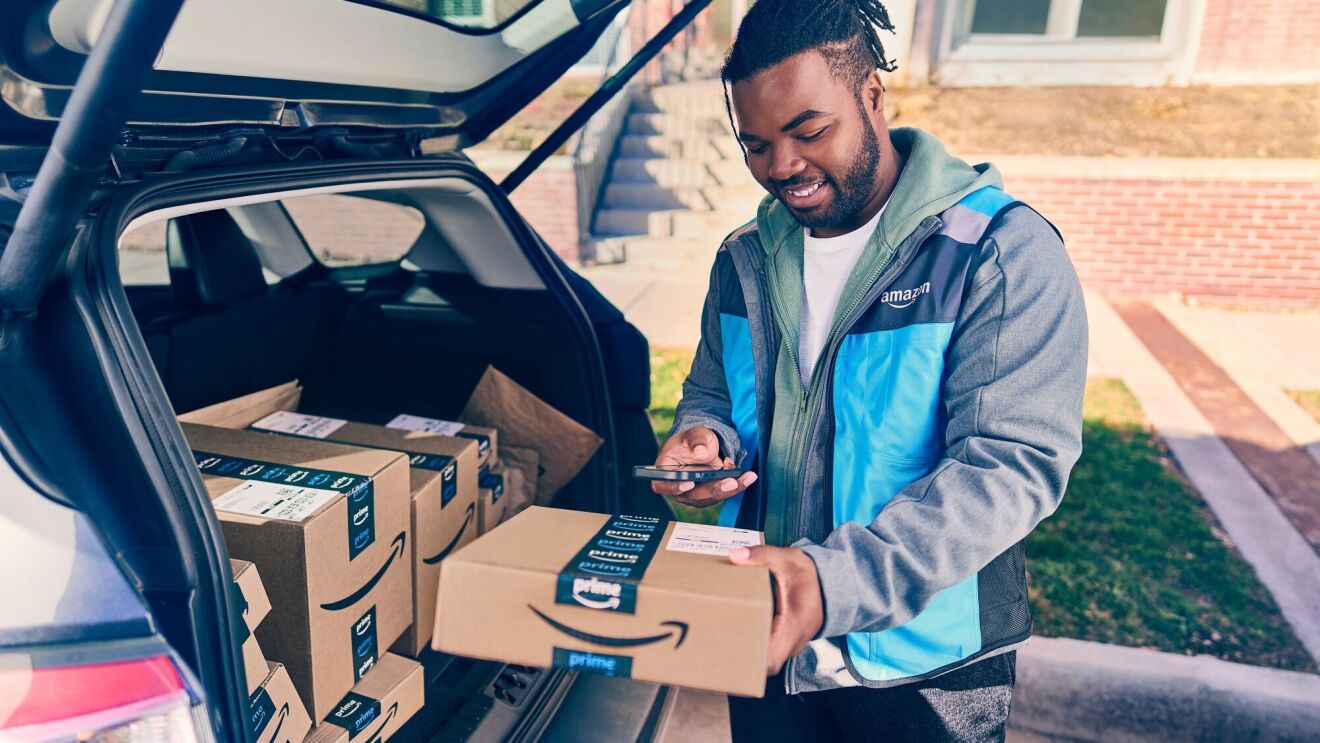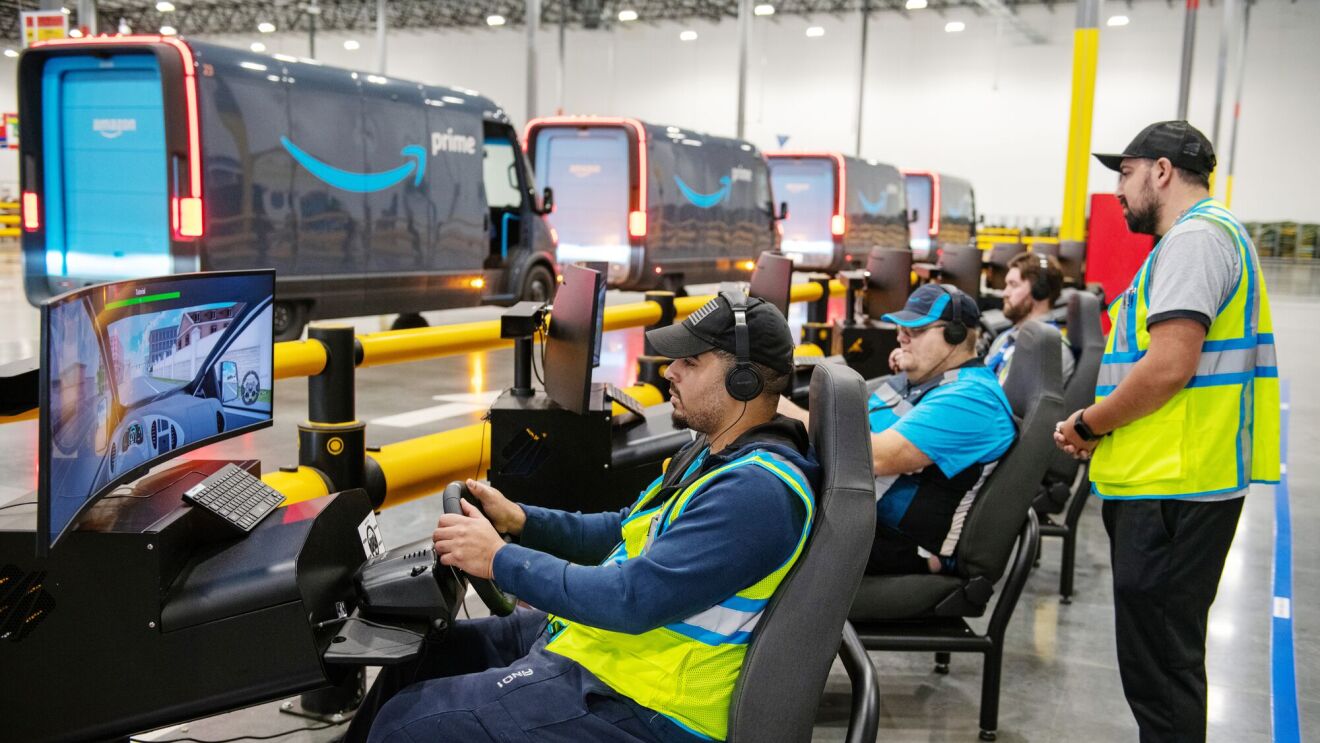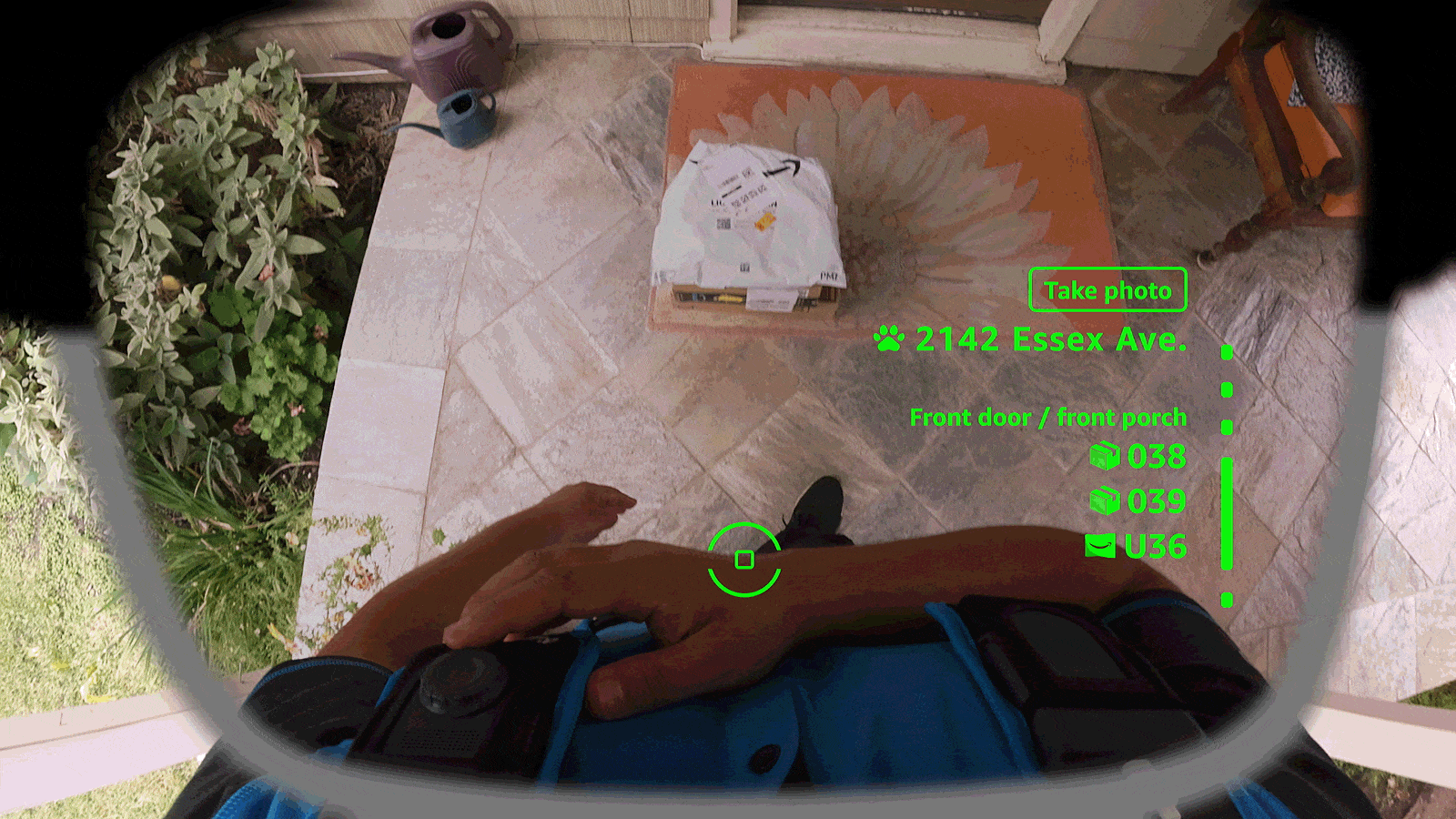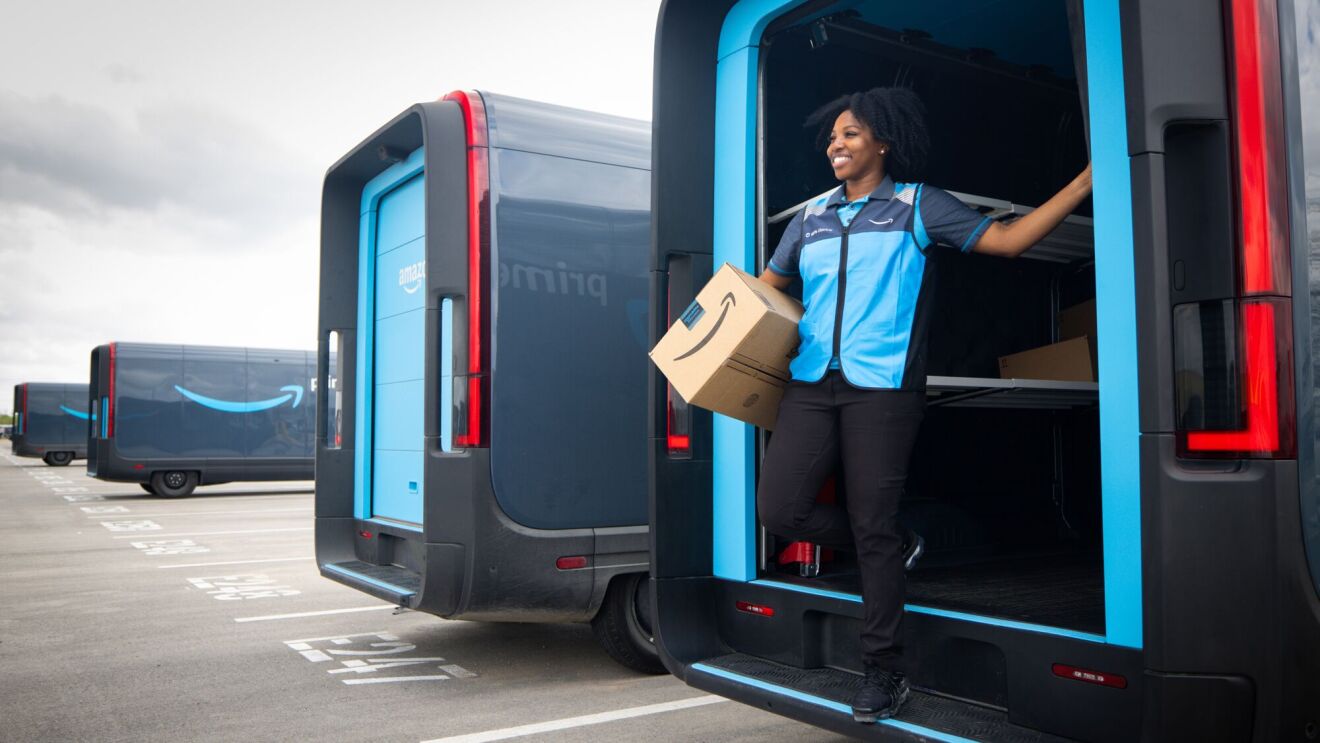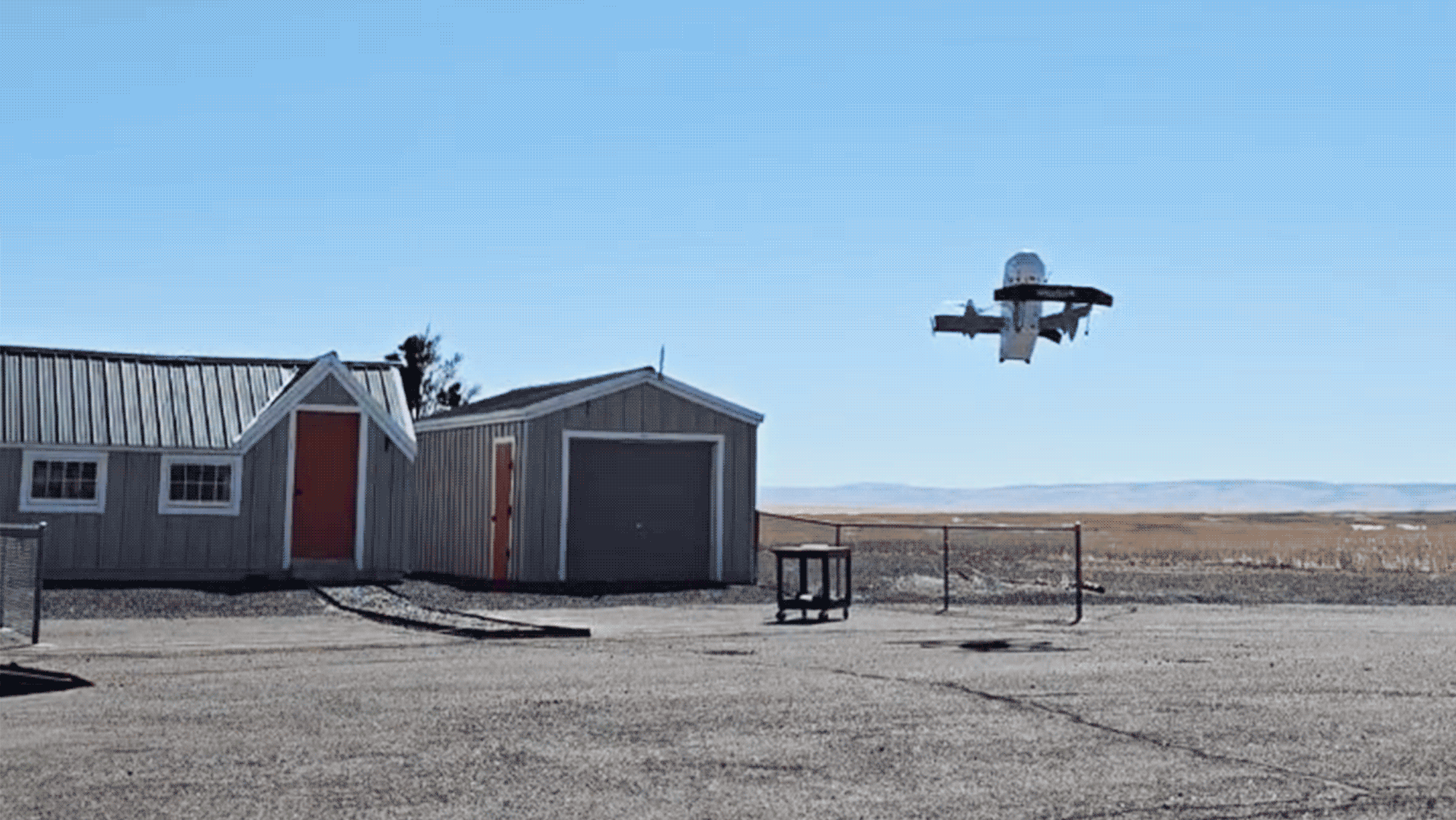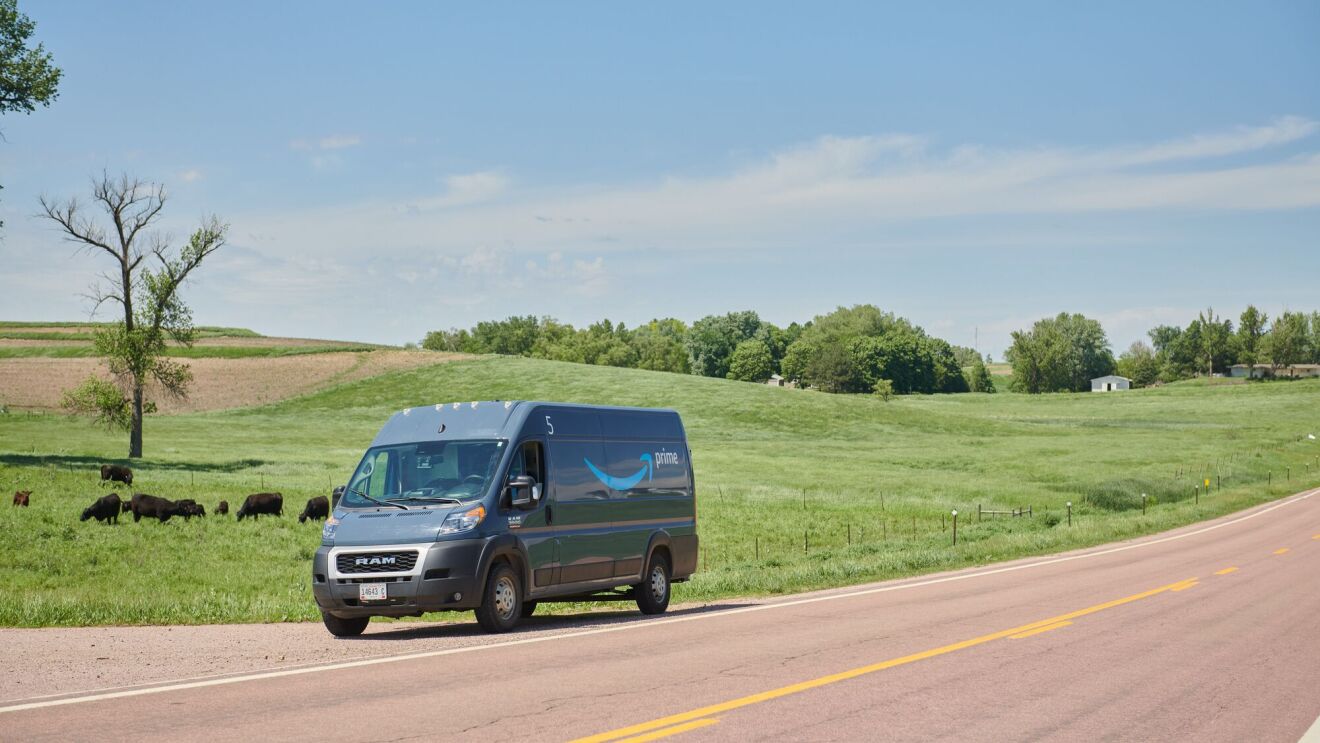Five years ago, Amazon built a program to empower aspiring entrepreneurs by giving them access to tools, resources, and technology so they could build their own delivery companies from the ground up. Since then, the Delivery Service Partner (DSP) program has grown to more than 3,500 businesses across 19 countries who employ 279,000 drivers, delivering on average 20 million packages every day.
Inspired by the success of this program, we have continued to create more opportunities for entrepreneurs to build and grow the businesses while serving Amazon customers in their communities. These include programs such as the Amazon Freight Partner (AFP) program that leverages small businesses in the trucking space to haul Amazon packages, and the Hub Delivery program, which utilizes existing small businesses—like hair salons, florists, and coffee shops—to deliver Amazon packages. Together, the small business owners in these programs are at the core of Amazon’s ability to reach customers around the world.
We spoke with three small business owners about what inspired them to start their businesses, why they chose to work with Amazon, and how it has impacted their lives and their communities.
Jay Cohen, owner of Prolific Logistics, DSP, Katy, Texas
A pioneer who joined as one of the first 180 DSPs in the program’s first year, Cohen worked to establish and grow his company and, in doing so, has found a sense of pride in being able to hire more than 280 people from his hometown in Southern California. Since launching his first DSP business in California, Cohen has recently moved his operations to just outside of Houston, where he plans to make the same impact on the community.
The DSP program has given Cohen the opportunity to give back to others and inspire people in his community. Cohen explained, “Being able to give my employees jobs with benefits, 401(k), and offering flexible schedules, has been such a heartwarming experience for me as an owner. It’s an opportunity I didn’t really think was possible before this program.”
In addition to creating jobs within his company, Cohen was recently able to nominate members of his team to the Road to Ownership program. This 16-week accelerated training and development program is designed to help drivers and team members of DSPs advance their careers and launch their own delivery businesses. At the end of the training program, candidates present their business plans—and graduates can receive a $30,000 grant to cover start-up costs and living expenses while they establish their business.
Cohen added, “I want to run the cleanest, safest, and most customer-obsessed DSP that works with Amazon. My grandfather was a mechanic and my father was a professional driver. It’s such an amazing opportunity to honor both of them with my business now that brings these two professions together.”
Marty Sexton, owner Greenville Auto Parts, Amazon Hub Delivery Partner, Greenville, Alabama
In the heart of Greenvile, Alabama, Sexton, the owner of Greenville Auto Parts, took a chance on a new program he learned about in a local Chamber of Commerce meeting.
“I saw opportunity to take the family business started by my dad and keep it going,” Sexton said. “I’ve been able to take the extra income and use it to add more inventory to store. Initially, I was only selling auto parts and since partnering with Amazon, I’ve been able to add other items to the store. This expansion has really taken off and become a big new part of the business. I feel really lucky to have been able to expand my inventory and provide the items that the people of Greenville want and need.”
Amazon Hub Delivery partners with small businesses who have a strong understanding of their local neighborhood. It is a flexible way for small businesses to increase their income while working with their existing staff and resources, by delivering packages during their natural down time. The program was piloted in rural areas of the U.S. and is now expanding to dense large cities such as New York, Los Angeles, Seattle, and Boston, with the goal to recruit 2,500 partners in 23 states by the end of 2023, including businesses such as florists, coffee shops, clothing boutiques, gas stations, plumbers, and hair salons.
“Since the launch, this program has added technology and tools to make it even easier and better for myself and other Hub partners to deliver packages to customers. It’s wonderful that Amazon takes our feedback and has used it to improve and expand the program across the country,” Marty, said. “It doesn’t feel like work getting to drive around and meet people. People joke about me being ‘Mr. Amazon,’ and hopefully when they need an auto part, lawn mower, or any small engine part, they think about ‘Mr. Amazon’ and our store up the road.”
Mo Washington, owner Footprints Delivery Service, AFP, Fresno, California
In the world of logistics and e-commerce, the role of freight partners has become increasingly crucial. In the last year, the AFP program has grown to empower 300 partners to start their own business, employ more than 7,000 drivers, and haul freight over 600 million miles across six countries. These small business trucking companies throughout the U.S. and the EU (UK and Germany) move Amazon items and packages between operations sites using new Amazon-branded tractors equipped with the latest safety technology.
“I originally looked into becoming a DSP, but got a call from Amazon about the AFP program,” Washington said. “My father was a long-haul truck driver but I didn’t know much about the freight business at the time. Amazon was able to teach me everything I needed to know about it in a few months. There’s not many other companies that help you in that way.” Footprints Delivery Service is based out of Fresno, California. Mo’s drivers work a consistent weekly schedule and have the option of returning home at the end of their shifts.
In a traditionally male-dominated industry, her accomplishments are inspirational for other women entrepreneurs looking to make their mark. Washington and other women-owned AFP companies are shifting perceptions and encouraging a more inclusive approach to business ownership. This year, 14% of AFPs are female-owned, which is double the industry standard.
“It means a lot to be able to operate this business as a woman, and I’m always intentional on recruiting other women. I don’t think that just because men have been in the trucking business in the past, it needs to continue that way,” Washington added.
“Being able to own this business and work with Amazon has been life changing—not just for me and my family, but for all of the people I’ve hired and work with every day,” Washington said. “I’m able to use the skills I’ve learned in my police and military background to be the boss I always wanted to have. I want my employees to be heard, respected, and appreciated. I want to give them the freedom to succeed and to support them in getting there.”
Trending news and stories
- Amazon Leo mission updates: Amazon’s first mission with Arianespace set for February 12
- How to stream 'Young Sherlock’ March 4 on Prime Video
- Watch the trailer for ‘Mercy' starring Chris Pratt, out now in theaters from Amazon MGM Studios
- Amazon MGM Studios' 'Melania' earns $7 million its opening weekend





